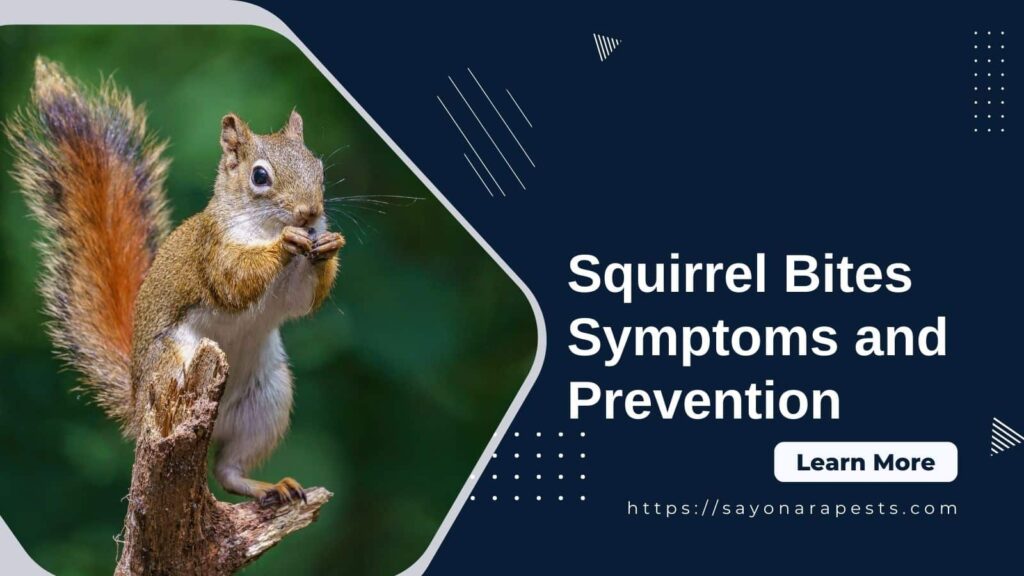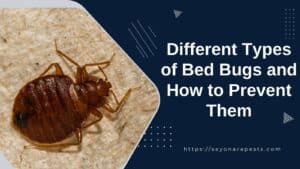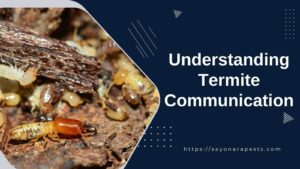Homeowners are sometimes surprised to learn that their furry backyard visitors can pose a threat.
Squirrels are generally gentle creatures, but they will bite if they feel threatened.
Although squirrels are not known for being aggressive, they will bite if they feel scared or threatened.
Squirrel bites can be painful, but they are usually not serious.
However, there is a small risk of infection from a squirrel bite, as the animals can carry bacteria in their mouths.
So, are squirrel bites dangerous? Keep reading to find out.
If a squirrel bites you, wash the wound with soap and water as soon as possible.
Apply pressure to stop any bleeding, and elevate the wound. This will help to reduce swelling.
You should also apply a clean bandage to the wound.
If the bleeding does not stop after 15 minutes or the wound seems to be getting worse, seek medical attention.
In most cases, a trip to the doctor is not necessary after a squirrel bite.
However, it is always a good idea to keep an eye on the wound for signs of infection, such as redness, swelling, or discharge.
If you notice any of these symptoms, call your doctor right away.
A squirrel’s bite is not poisonous. However, there is a small risk of infection if the bite breaks the skin.
Squirrels are generally harmless animals but can become aggressive if they feel threatened.
If a squirrel bites you, wash the wound with soap and water and see your doctor.
Squirrel bite may cause rabies
Yes, they do but not most of the time.
Squirrels are not a common source of rabies, but they can carry the virus.
Rabies is a severe infection that can be passed to humans through a bite from an infected animal.
Symptoms of rabies include fever, headache, and nausea.
If a squirrel bites you, it is essential to seek medical attention immediately, as rabies can be deadly.
In most cases, however, squirrel bites will not cause rabies.
The virus is more commonly found in bats, raccoons, and skunks.
Symptoms of a squirrel bite
Squirrel bites can be painful, but they are usually not serious.
Symptoms of an infection include redness, swelling, and discharge from the wound.
The redness will usually start to appear within 24 hours of the bite. The swelling will peak after 2-3 days.
If the wound becomes infected, it may discharge pus or other fluids. The infection can also cause fever, chills, and body aches.
If you think a squirrel has bitten you, wash the wound with soap and water. Apply an antibiotic ointment if available.
How can I prevent getting bitten by a squirrel?
Do not approach them.
Do not approach or touch a squirrel, as they may view this as a threat.
Squirrels are naturally timid animals and will usually flee if they feel threatened.
If you must be in an area with squirrels, keep your distance and do not try to interact with them.
If a squirrel approaches you, try to remain calm and avoid sudden movements. Speak in a soft, soothing voice and slowly back away from the squirrel.
If the squirrel does become aggressive, try to protect yourself by covering your face and head with your arms.
If you are carrying a bag or jacket, hold it out as a barrier between you and the squirrel. In most cases, the squirrel will eventually lose interest and move on.
Do not feed them
Squirrels that humans feed may become aggressive and bite.
Never feed a squirrel, as this can lead to them becoming accustomed to humans and losing their natural fear of us.
If you see someone feeding squirrels, try to educate them on the dangers of doing so.
Be aware of mother squirrels.
Mother squirrels are very protective of their young and may become aggressive if they feel threatened.
If you see a squirrel with babies, it is best to leave them alone and give them a wide berth.
If you must go through an area with mother squirrels, try making as little noise as possible and avoid making any sudden movements.
Be aware of your surroundings.
When you are in an area where squirrels are present, be aware of your surroundings and watch them. If you see a squirrel, give it space and do not approach it.
If you are in an area with a lot of squirrels, try to make yourself as small as possible and avoid making sudden movements.
Move slowly and deliberately, and keep your eyes on the squirrels to see if they show any aggression.
The best way to avoid getting bitten by a squirrel is to simply be aware of their presence and give them space.
Overall, you do not have to panic when you see a squirrel. In most cases, they pose no threat to humans.
However, it is vital to be aware of the potential dangers of getting bitten and to take precautions to avoid it.
If a squirrel ever bites you, seek medical attention immediately, as rabies can be deadly.











